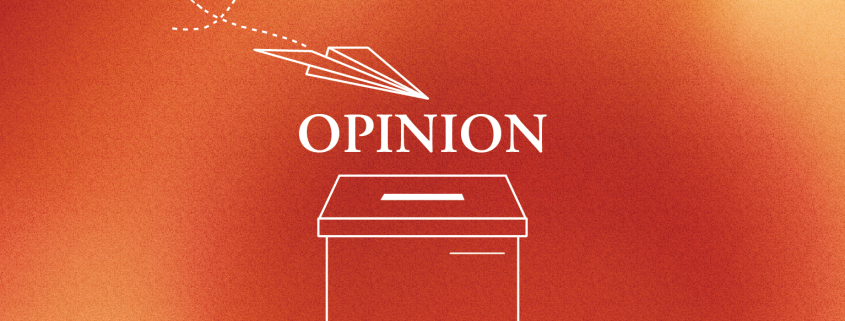Proselytizers don’t make me feel welcome at school
As someone who has grown up surrounded by Christianity, I’m used to the rhetoric. I know the stories and I’m accustomed to the belief system. However, I’ve never identified as a Christian, or as a religious person in general. Yet, though I’m familiar with religion, proselytizers — those who try to persuade others to accept or believe their own religion or politics — still make me uncomfortable. In my and my friends’ experiences, they’re impossible to stay away from, especially when you’re rushing to make it to class.
I feel like every spring I experience the constant and relentless handing-out of religious flyers on every corner surrounding USC Village and campus. It may be hard to pinpoint exactly how many of these proselytizers there are around USC grounds, but their presence, in my opinion, prevents the University from truly being an inclusive community — one where every person can feel welcome, regardless of their gender, sexual orientation, race, etc.
In most cases, they just want to invite you to their Bible study or church group, which is innocent enough. However, the issue for me arises when they elongate the conversation even after you’ve clearly expressed disinterest, which has happened about every time I’ve been approached. There is a difference between respecting another person who has different beliefs than you and trying to change that person because they have different beliefs than you.
One is cordial. The other is not.
Sometimes, flyers or pamphlets are handed out in accordance with these invitations to prayer or Bible studies. Occasionally, like many other students, I’ll just take the paper to be nice. But there have been instances when the material being handed out was flatout offensive. I’ve been given pamphlets that list depression, homosexuality, premarital sex and “being emo” as offenses necessitating Jesus.
It’s important to note that USC Village is widely regarded as a public space, where interactions like these aren’t that peculiar. However, it’s when these instances move onto campus that I become weary, especially when the proselytizers aren’t current USC students. These actions do sometimes really take away from my day-to-day experiences as a student here.
You could ask me to not take it so seriously, that a few-minutes-long exchange shouldn’t get to me like it does. But I just can’t shake the bothersome feeling that it gives me every time a proselytizer tells me that my lifestyle is wrong and that, in their eyes, I need help.
It’s not someone else’s job to judge what I need help with and when; in fact, it’s just plain offensive. It’s okay to disagree with my lifestyle choices — I likely don’t agree with theirs — but that doesn’t mean I feel moved to hand out propaganda that’s meant to change the way people live in a crude and unsympathetic manner. These actions don’t instill a sense of community or welcoming, that’s for sure.
I also feel pretty confused at the fervent efforts of proselytizers in a city where just about 65% of the population identify as Christian, about the same as the national percentage. Maybe you could argue that USC is more religiously diverse than the rest of Los Angeles, and therefore constitutes a bigger conversion target, what with all the heathens that study within its confines. But, when looking up religious organizations on EngageSC, 22 Christian affiliates come up. On the other hand, there are only four student organizations that are affiliated with Islam, Judaism, Hinduism or Buddhism — the other most commonly practiced world religions — combined.
It’s hard to understand who these proselytizers are trying to convert when the majority already believes what they do.
If someone is really passionate about their beliefs, then I don’t fault them for trying to share those beliefs with the people around them. But it can be difficult to keep an open mind when the loudest voices are those on the pamphlet telling me I’m going to hell for being depressed or the ones with the megaphones damning me for the same reasons right before a football game.
I want to be able to see proselytizers as those doing work in good faith (no pun intended), but I need people who may subscribe to these ideologies to know that their efforts to change my beliefs make it difficult for me to go about my life. This system of proselytism can never incite a true and meaningful conversation, it just creates further divide and less of a sense of belonging for USC’s diverse religious community.
Correction: A previous version of this article was accompanied by an illustration which depicted a young woman being presented pamphlets emblazoned with religious symbols. The presence of one of these symbols, the Star of David, wrongfully implied that Jewish proselytizers were common. This is incorrect, as proselytism is seen as offensive in Judaism, and as such Jewish proselytizers are highly uncommon. Jewish organizations on and around USC’s similarly do not attempt to recruit or convert students. The Daily Trojan regrets this error.

